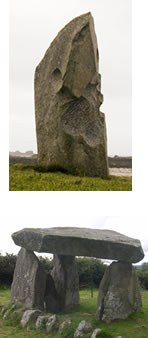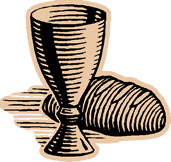– l’indication (f) = clue = arwydd, cliw = arouez
– l’indice (m) = clue (in investigation) = arwydd, cliw = merk rumm
– la définition = clue (in crosswords) = arwydd, cliw
– être au parfum = to be clued up = bod yn gyfarwydd â
– la nageoire = fin (of fish) = asgell = angell
– l’aileron = fin (of shark, dophin) = asgell = angell
– maître nageur (euse) / surveillant de plage = lifeguard = achubwr bywydau = mestr neuñver saveteer
– la marionnette (à gaine) = (hand/glove) puppet = pyped (llaw/maneg) = margodenn
– le pôle Nord = the North Pole = Pegwn/Pôl y Gogledd = penn-ahel an Norzh
– la rougeur / l’éruption (f) = rash = brech = ruzded / brec’h
– la boussole = compass (for navigation) = cwmpawd = nadoz-vor
– le compas = compass (for drawing circles) = cwmpas = kelc’hier, kompaz
Category: Breton (Brezhoneg)
Sentence bank
I’ve decided to learn some more Breton and have found a very useful website – the Breizh-Llydaw Sentence Bank (y Cronfa Frawddegau Breizh-Llydaw / Ar gevredigezh Kembre-Breizh) – a bilingual corpus of sentences in Breton and Welsh from the magazine Breizh-Llydaw. I can understand the Welsh sentences and can more or less work out the meanings of the Breton words from the context. I think I’ll use it to learn Breton vocabulary and grammar in context.
Does anybody know of any similar bilingual corpuses for other languages?
Related tools include Geriaoueg, a Breton, French, Welsh, English, Icelandic, Catalan, Spanish dictionary; and morphological analysers for Breton and Welsh.
Les mots de la semaine
– la côte = rib = asen = kostenn
– la cage thoracique = rib cage = cawell asennau = kest ar brusk
– le couple = rib (of boat) = asen = koubl
– la coque = hull = corff llong = korf ar vag
– l’armature (f) = frame(work), bone, underwiring = ffrâm, fframwaith = frammadur
– prouver, avérer = prove = profi = prou(v)iñ, donet
– le sous-bock, le rond à bière = beermat = mat cwrw
– le bock = beer glass, glass of beer = gwydr cwrw = bok
– dénonciateur, corbeau = whistle-blower = chwythwr chwiban = disklêrier
– ringard, old school = cheesy, naff = sathredig, ystrydebol, ffuantus = kaoc’h kazh
– le pied = leg (table, chair) = coes
– le dossier = back (chair) = cefn – kein
– le siège = seat (chair) = sêt = sez
– le réduction, la rabais = discount = disgownt = rabat, diskar
De cette semaine le mots de la semaine seront en français, anglais, gallois et breton.
From this week the words of the week will be in French, English, Welsh and Breton.
O’r wythnos ‘ma byddan eiriau yr wythnos yn Ffrangeg, Saesneg, Cymraeg a Llydaweg.
Yezhoù, kanaouennoù ha sonerezh
The Breton couchsurfers arrived yesterday, with an Austrian friend, and we’re having a great time. They’ve taught me a bit of Breton, we’ve also talked in French, English, Welsh, Irish and German – I love having opportunities to use my languages like this. I’ve learnt more about Brittany and Breton and have shown them round Bangor – they particularly like the older parts of the university.
Last night we did some silly singing at the crazy choir – a small group of us who get together every other week to improvise songs and harmonies and generally be silly. After that we went to a folk music session at a nearby pub. Tonight we’re going to a cèilidh, which will the first time they’ve been to one, though they do have something similar in Brittany – fest-noz.
Couchsurfing and languages
Last week when looking for people in Bangor to practise my languages with I found mention of a polyglot conversation group on couchsurfing.org. I’m not sure if it’s still going, but after looking around the site I thought I’d register. A few days later I got a couch request for this coming weekend from some Breton-speaking students who are currently studying Celtic Studies in Aberystwyth. So I decided to learn some more Breton this week. I’m using Colloquial Breton, doing a little every day, and listening to Radio Breizh.
I’ve heard about others using couchsurfing to find people to practise languages with, but haven’t tried it myself yet. It looks like a good way to do so. Have you used it to find in this way?
Menhirs, dolmens and cromlechs

The word menhir come up in discussion yesterday and I posted it on Facebook today along with the the Welsh translation maen hir, which is what I found in this dictionary. This provoked further discussion about whether the two terms mean the same thing. So I thought I’d find out.
A menhir is a standing stone of the kind that Obelix delivers in the Asterix books. According to the Dictionary of Word Origins and the OED, menhir comes from Breton mean-hir (long stone), which is what the Welsh term maen hir means, so it seems that they are the same. The usual Breton word for such standing stones is peulvan, however.
The word dolmen (a prehistoric structure of two or more upright stones surmounted by a horizontal one), comes via French from Breton: the men part means stone, and the dol part either comes from the Breton word tōl (table), a borrowing from the Latin tabula (board, plank), or from the Cornish tol (hole). So dolmen either means ‘stone table’ or ‘stone hole’.
The word dolmen also exists in Welsh, and another word for such structures is cromlech, which exists in Welsh and English and comes from the Welsh words crwm (bent, stooped) and llech (stone), and is related to the Irish word cromleac (‘bent stone’).
Cars, carts and chariots
Last week I was told that the English word car originally comes from the Irish word carr (donkey cart). Apparently when cars came to Ireland Irish speakers thought it was better to come up with a new word for them than to name them after the humble donkey cart, so the term gluaisteán (‘moving thing’) was coined. I hadn’t heard about this before so thought I’d check it.
According to the Online Etymology Dictionary the English word car has been used to refer to a wheeled vehicle since 1300 and comes from the Old Northern French word carre, from the Latin carrum/carrus, which originally referred to a two-wheeled Celtic war chariot, from the Gaulish word karros, from the Proto-Indo-European word *krsos, from the root *kers- (to run).
There are related words in Welsh carr (cart, wagon), and in Breton: karr (chariot, cart), in Cornish: karr (car), in Manx: carr (car), in Spanish and Italian: carro (cart, wagon) and probably in other languages.
The word chariot comes from the same root as car, but cart probably comes from the Old Norse word kart-r (cart), according to the OED.
Another vehicle-related word we discussed last week is carbad (chariot), from the Old Irish carpat (war-chariot, waggon). It is related to the Welsh cerbyd (vehicle, car, carriage, coach), the Old Breton cerpit, the Gaulish carpentoracte, from the Latin corbis (basket), from carpentum (two wheeled chariot), which was probably borrowed from Gaulish. The root idea is ‘wicker’, referring to the basket character of the body of these chariots.
Yn Chruinnaght
Tomorrow I’m off to the Isle of Man for Yn Chruinnaght (‘the gathering’) – a celebration of Manx and Celtic music and culture featuring performers and participants from the Isle of Man, Scotland, Ireland, Wales, Cornwall and Brittany. I’m really looking forward to it as it’s a great opportunity to see old friends and make new ones, and to hear, speak and/or sing in quite a few different languages – last year at Yn Chruinnaght I heard all six modern Celtic languages being spoken and sung, and spoke in four of them, and also in French and English.
I’ll be in the Isle of Man for a week, then I’m off to Gleann Cholm Cille in Donegal in Ireland for a summer school in Irish language and culture.
Baragouiner

The French words baragouin and baragouiner came up in conversation yesterday and I thought I’d write about them today as they have an interesting etymology.
According to Reverso baragouin means ‘gibberish, gabble or double Dutch’ and baragouiner ‘means ‘to gibber, jabber, gabble’. The Larousse Dictionary defines baragouin as language that is incomprehensible due to poor pronunciation, vocabulary or syntax, or an incomprehensible foreign language; and baragouiner as to talk a foreign language, incorrect pronounciation, or to express something in an incomprehensible way.
According to Wikitionaire and Le Dictionnaire d’étymologie française, these words come from two Breton words – bara (bread) and gwin (wine) – things that Breton-speaking travellers often asked for from French-speaking inn keepers during the Middle Ages and which the French speakers particularly noticed. As the French speakers didn’t understand what the Bretons were saying, they associated these words with gibberish or an incomprehensible language.